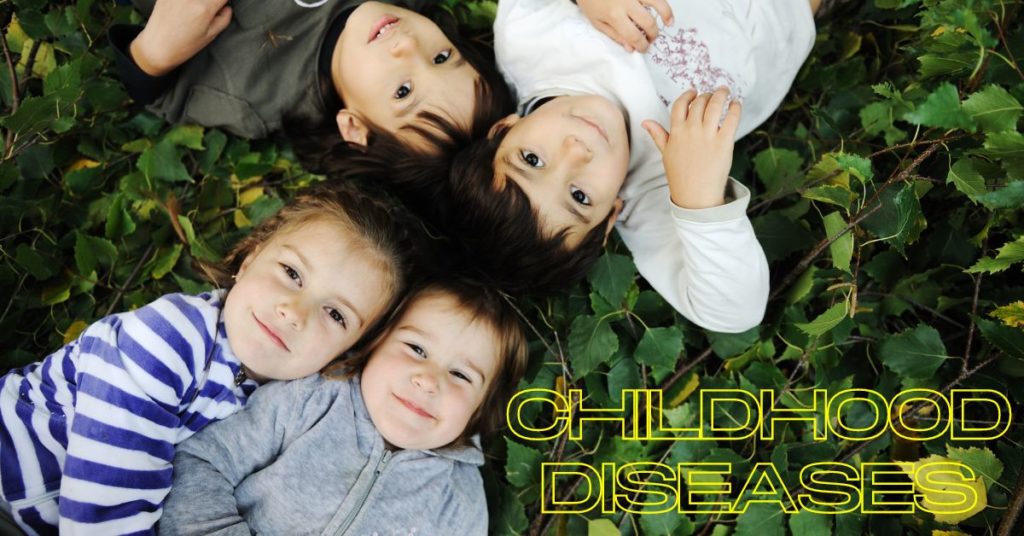When a child goes to school or kindergarten, we, mothers and fathers, think mainly about whether the child will study well, whether a promising school has been chosen enough, whether he will be assiduous, and many other things. What do we know about children’s health?
Children’s Health – The actual problem is how to raise a healthy child?!
Table of Contents
What happened nowadays: shot review
- Nowadays, there is no increase in the birth rate.
- There is an increase in child mortality (more than 70% of deaths are related to how the child is socially adapted, whether he is ready for his given environment).
- 63% of children die from accidents and suicides, of which 35.5% are road traffic accidents.
- Change in food quality.
- Inadequate physical activity (lack or excess).
- Bad habits (alcohol, drug addiction, smoking, computer, game addiction).
In recent years, doctors and hygienists, summarizing the analytics, have drawn disappointing conclusions: the number of healthy schoolchildren is declining every year. According to various sources, up to 90% of children have chronic diseases by the end of school. Some pathologies develop already during the study:
- Myopia (nearsightedness);
- Violations of posture: thorax deformation, scoliosis, kyphosis;
- Digestive system diseases;
- Respiratory and intestinal infections
This is followed by vegetative-vascular dystonia, neurosis, injuries in physical education classes and during breaks, etc. In addition, during the first years of schooling, the child repeatedly suffers from a wide variety of infectious diseases, including respiratory and intestinal.
WHAT DO PARENTS NEED TO KNOW?
Myopia
Among the diseases of the organs of vision, myopia is in the lead, followed by hyperopia and astigmatism (a visual defect that occurs due to the pathology of the lens or cornea). Myopia is a common vision condition in which near objects appear clear, but objects farther away look blurry.
The reasons for this are high eye strain at school and when doing homework, a computer, TV, and various electronic toys. Heredity also plays a significant role, and in our time, every third adult is also short-sighted. If you see that the child squints, brings the book close to his face, or complains of pain in his eyes, you should consult a doctor so as not to worsen the situation.
How to prevent it?
- Regularly do eye exercises with your child to train the eye muscles. This is a translation of the gaze from a close object to a distant one, alternate rotation of the eyes clockwise and counterclockwise, and other exercises, information about which is in the office of every ophthalmologist;
- Children´s desks should be equipped with a good lamp, and the light from the window should always fall on the left;
- Between the book (notebook) and the eyes of the child should be a distance of at least 40 centimeters;
- After school, the eyes need a break of at least 1 hour. Therefore, the child should sit down for lessons only after rest;
- Staying at the monitor or TV should not exceed 30 minutes a day;
- There are no special over-the-counter drugs to improve vision in children, but there are various vitamin complexes and food supplements containing blueberries (Strix, Biofit Blueberries, etc.).
Digestive system diseases: Gastritis
Gastritis is an inflammatory process in the gastric mucosa caused by the bacterium Helicobacter pylori or bile refluxes. Helicobacter pylori live in the stomach of 80% of the world’s population but manifest itself only if the body is weakened. A child experiencing serious educational and emotional stress but completely refusing good nutrition at school or snacking on chips and buns is at risk of developing gastritis. Complaints about gases, nausea, and belching – a direct indication of a visit to a gastroenterologist.
How to avoid it?
- Maintain a consistent “schedule” of meals, especially if your child regularly attends clubs or other extracurricular activities outside of school;
- Try to feed your child mainly homemade food, and save fast food and soda for special occasions. Do not forget that the children’s stomach still tolerates fatty, smoked, fried and spicy dishes very badly;
- If the child is very excitable or impressionable, try to reduce his psycho-emotional stress – against this background, eating habits will normalize faster; from damaging effects, and then immediately consult a doctor for a complete examination.
Bad posture
If in primary school, from half to one-third of the children have a healthy back, then by the senior grades, this ratio changes for the worse – only 2-3% of adolescents remain without violations of posture. The rest suffer from asymmetry, kyphosis, scoliosis, lordosis, pterygoid scapulae, and other pathologies of the musculoskeletal system.
This is due to the following:
- improper seating at the desk and at the desk at home,
- heavy briefcases, and even worse – bags on one shoulder,
- low physical activity, and, as a result, a weak muscular corset of the back;
- It is also important that in many schools, the furniture does not correspond to the anthropometric data of children.

How to prevent it?
- Make sure that the child’s back should be straight when walking, the shoulder blades are deployed, the stomach is pulled in, and the head is “proudly” raised;
- If the child is sitting at the table, then his legs, elbows, and back must be supported, and the height of the table must be 2-3 cm above the level of the elbow of the lowered arm of the child in the sitting position;
- Make sure the child does not do his homework, sitting in a chair or lying on the couch – only at his desk.
- Children should sleep on a special orthopedic and anatomically correct mattress, such as the Plato children’s mattress;
- Again, sports and physical education are necessary, like air. This is the key to good posture!
Respiratory infections
The reasons for frequent respiratory viral diseases are clear. A large gathering of children in a closed and often stuffy room with artificial ventilation and rare ventilation greatly helps the exchange of viruses between children. And some of them come to school already with a runny nose or cough… A weak, often ill child or a first grader who has not attended kindergarten will fall victim to such contact by 99.9%. Only those children who have strong immunity will survive.
How to prevent it?
- Try to have your child spend at least 1.5-2 hours outdoors a day, and not only in the warm season;
- Teach your child to wash their hands with soap and water regularly or use disinfectant wipes/sprays outside the home, and avoid touching their face with dirty hands during the day;
- Use specific preventive measures – influenza vaccination;
- If you think a vaccine is too much of a burden on your child, be sure to use a non-specific prophylaxis. It is especially important to do this at the very beginning of the school year or during flu epidemics.
- The main thing is not to send your child to classes if he has the first symptoms of Respiratory infection or, conversely, this disease has not been wholly cured: this way, you will save the health of your child and many others.
Recommendations for the prevention of entirely different diseases are very similar
- strengthening the immune system,
- proper nutrition,
- adherence to the regimen,
- mandatory physical activity.
It is necessary to make many efforts, but the reward for this will be a healthy, active, cheerful child to whom school achievements will be easy.
If you liked this article, please leave your comment below. This means a lot to me. Thank you!






Pingback: (2023) Secrets About A Clumsy Child: Impact Of Connective Tissue Disorders On The Development Clumsiness | Child Health Creation